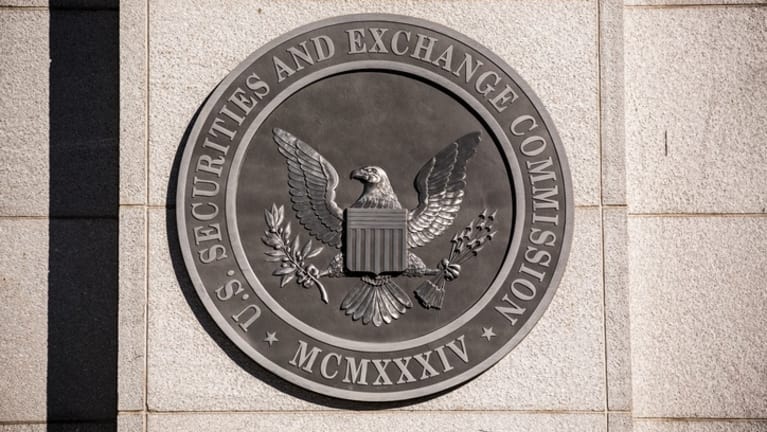
New regulations would apply to more advisors than the DOL’s stalled rule
The Securities and Exchange Commission (SEC) on April 18 issued its own proposals to enhance the quality and transparency of investors' relationships with advisors and brokers.
The SEC's move comes at a time when the Department of Labor (DOL) struggles over implementing the Obama administration's fiduciary rule requiring retirement plan advisors to offer only advice that's in the best interest of plan participants regardless of fees or commissions—and holding plan sponsors liable for seeing that they do.
This move by the SEC comes after a March 2018 ruling by the 5th Circuit that squashed enforcement of the DOL's 2016 fiduciary rule, putting the guidelines in limbo, in what John Ryan, a partner in law firm Seward & Kissel's employee benefits group in New York City, calls the "Kafkaesque saga of the fiduciary advice rule."
The DOL faces an April 30 deadline to appeal the 5th Circuit decision, Ryan noted. If the DOL chooses not to appeal, the court's decision will take effect on May 7, vacating the DOL's rule. That could pave the way for the SEC to be the key regulator of investment advice.
Among the documents the SEC issued last week were:
- A proposed investment advisor interpretation that clarifies the fiduciary duty an investment advisor owes clients, including advice about an investment strategy and recommendations to roll over assets from an employer-sponsored retirement plan to an individual retirement account.
The public comment period will remain open for 90 days following the documents' forthcoming publication in the Federal Register.
SEC's Broader Reach
The DOL's fiduciary rule, proposed in 2015 and finalized in 2016, applied to some—but not all—financial advisors and brokers. The DOL can regulate services provided to retirement accounts but (unlike the SEC) lacks jurisdiction over taxable brokerage accounts.
Excluding some types of annuities, the SEC's rule would apply uniformly across all types of investment accounts, "which is arguably a significant improvement from the DOL's fiduciary rule that was limited to 'just' retirement accounts," blogged financial writer Michael Kitces.
Some states, including Nevada and Connecticut, have also adopted their own fiduciary rules, which can be more expansive than the DOL's rulemaking, Kitces pointed out.
No Right to Sue
While the SEC proposal calls for a best-interest standard for investment professionals, it does not provide for a private right of action giving investors the right to sue, which was a controversial component of the DOL's fiduciary rule.
"The law should unambiguously require investment professionals to act in the best interests of their customers, who entrust them with their hard-earned money," said Dennis Kelleher, president and CEO of Better Markets, a nonprofit that supports financial reform. The SEC proposal "appears to fall well short of that standard, relying too heavily on disclosure. While some provisions may offer modest benefits to investors, the SEC appears to have missed a historic opportunity to finally establish a strong, clear, enforceable best-interest standard for all advisors."
However, regardless of the status of its fiduciary rule, "the DOL has the authority to use its resources to investigate and discipline any plan fiduciary who breaches their fiduciary duties, and can initiate action based on complaints from plan participants who have been harmed," said Barry Kozak, a Chicago-based retirement planning advisor with October Three Consulting. "Similarly, the SEC has the authority to investigate and discipline any broker-dealer or investment advisor who violates their rules of conduct, and can initiate action based on complaints from the general public," he added.
Future DOL Guidance
If it doesn't appeal the 5th Circuit case and its fiduciary rule is vacated, "the DOL still could provide additional guidance that complements the SEC proposal," Ryan said. "Such guidance could require clear disclosure of the level of advice being offered"—for instance, whether it meets the Employee Retirement Income Security Act's fiduciary standard and is for participants' exclusive benefit—"that will provide plan fiduciaries with a clear understanding of the relationship they are entering into, the obligations of the financial institution, as well as the fees they are paying for those services," he explained.
Similarly, "It is likely—at least in my view—that the DOL will follow suit and issue a proposed regulation re-defining fiduciary advice" that is less expansive than the DOL's fiduciary rule,blogged attorney Fred Reish, a partner in the Los Angeles office of Drinker Biddle & Reath. "The DOL will also need to issue prohibited transaction exemptions," he noted, adding, "I suspect that the DOL exemptions will, for the most part, follow the SEC's disclosure requirements, but perhaps adding additional protections for retirement investors."
No Going Back
While the future of the DOL's fiduciary rule remains uncertain, and the SEC's regulations governing the conduct of broker-dealers and investment advisors have been published only in proposed form, pending public comments, "business models are most likely being realigned right now" at financial services firms, Kozak said. Financial firms "are trying to project short-term and long-term compliance solutions with these possibly competing rules in a manner that is least disruptive to their bottom lines, which generally could mean the elimination of certain undisclosed compensation bonuses and rewards for the purchase of certain investment options over others."
He added, "If the industry becomes more forthcoming with how compensation is actually determined, then, with informed consumers, there will be less chance of a violation of trust."
Although the Society for Human Resource Management (SHRM) has not taken a position on the SEC's efforts, "SHRM believes that a bedrock of sound fiscal and savings policy is ensuring that every U.S. employee has the opportunity to save and plan for retirement and protect his or her family's health," and that "public-policy efforts at both the federal and state levels should focus on expansion of and access to benefits, including retirement accounts," according to SHRM's 2018 Guide to Public Policy Issues.
***** ***** ***** ***** *****
Source: Society for Human Resource Management (SHRM)
https://www.shrm.org/resourcesandtools/hr-topics/benefits/pages/sec-investment-advice-proposal.aspx
